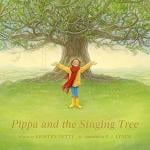Vancouver Sun columnist Peter McKnight has written one of the sharper pieces in the ongoing culture war — more of a skirmish, really — over the moral meaning of March of the Penguins:
It’s not often Christian conservatives take a page from the book of liberal gay activism, but when they do, you know it won’t be worth the read. . . .
These comments suggest that the commentators slept through parts of the movie — or were too busy transcribing God’s thoughts — because they’re wrong on every count:
Monogamy? Wrong — unless you understand monogamy in a musical chairs kind of way. The movie makes it clear that, after the child rearing is done, the happy couples spin their partners round and round, do-si-do, and then spin into new relationships each year.
Sacrifice? Wrong — some penguins do starve or freeze to death, but there’s no reason to believe their breeding practices are particularly burdensome, given that the penguins were selected through evolution (a bad word, I know) to survive in the unforgiving climate of Antarctica. The frozen continent is, after all, their home.
Pro-life? Wrong — the film notes that if Mum doesn’t arrive with food within the two-month window, Pop’s off to find some grub for himself, leaving baby to fend for itself — that is, to starve to death in the frozen wasteland. That’s about as pro-life as the militaristic ancient Greek city state of Sparta, where babies deemed unfit by the committee of elders were routinely left to die of exposure on the slopes of Mount Taygetos. . . .
What’s good for the goose is good for the gander, I suppose — if liberal gay activists appeal to animal behaviour for an affirmation of their values, conservative Christian activists might as well do so, too — but this line of reasoning isn’t good for anyone.
Aside from lowering ourselves beneath the penguin — and that’s not easy — the behaviour of the flightless birds will never affirm anyone’s values because their behaviour is utterly valueless.
It’s tempting to anthropomorphize penguins — they do after all, resemble certain people who shall remain nameless — and it seems humans have a natural tendency to demystify animal behaviour by imputing human motives to animals.
Yet there’s absolutely no reason to believe penguins’ actions are the result of any considered moral calculus. Emperor penguins don’t choose to care for their young (or to engage in homosexual behaviour) because it’s the right thing to do. There is no right or wrong in the penguin world, since penguins don’t choose to do anything at all in the sense we give to that term; rather, they behave in these ways because it’s in their nature to do so, because their behaviour is programmed by their instincts and by their environment. In short, penguin behaviour is determined.
In contrast, humans are self-determining: While influenced by nature and the environment, we aren’t constrained by the dictates of nature. If we were, we would cease to be moral beings.
Rather, we have the ability to act autonomously, to break free from the shackles of nature, and we recognize that sometimes, we have the moral obligation to do so. . . .
I think I can agree with most of this. Indeed, not to toot my own horn or anything, but I’m a little proud of the fact that I not only seem to have been the first online Christian critic to review this film (my review went up July 8, and Jeffrey Overstreet’s weekly “Film Forum” didn’t cite any other Christian reviews until August 4), but I also questioned the film’s anthropomorphic tendencies, including its claim to be a “love story” (“Is it really love if the characters have different sexual partners every year?”).
One interesting question, BTW, is where McKnight gets the idea that there is something about humans that makes us separate from, or different from, the rest of nature. As one who believes humans are made in “the image of God”, I am not bothered by this assertion. But I am a little curious as to what he bases it on.
Lastly, I actually think Christian activists could learn a few things from gay activists. See the column I wrote nine years ago comparing and contrasting The Celluloid Closet (1995) with Michael Medved’s Hollywood Vs. Religion (1994).












